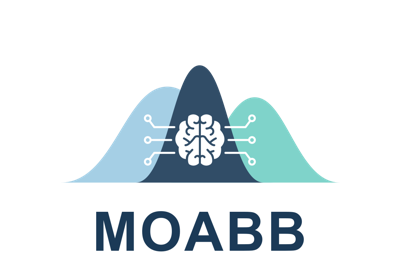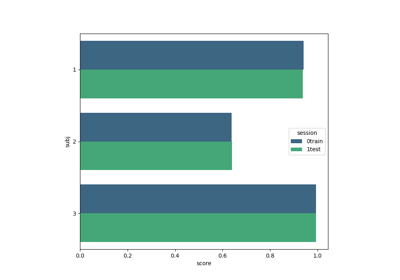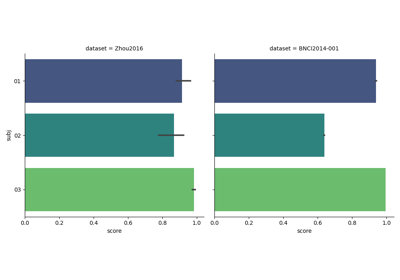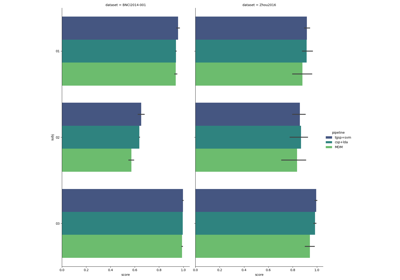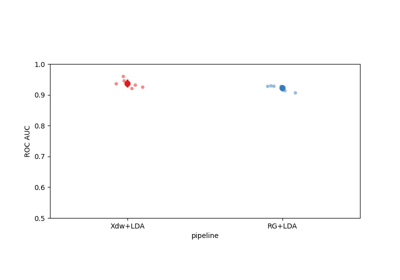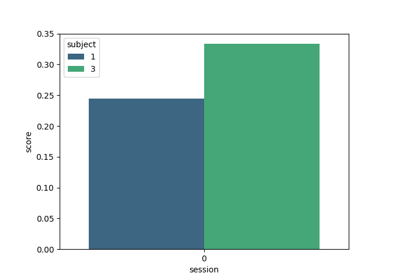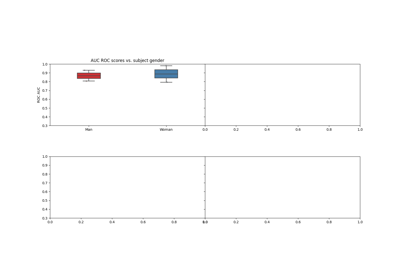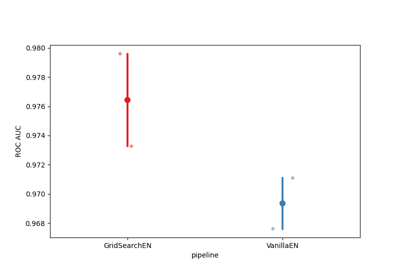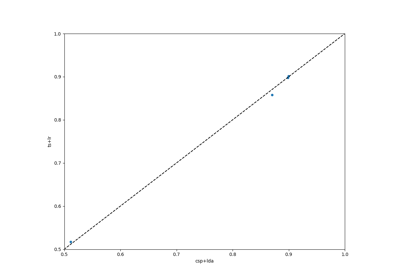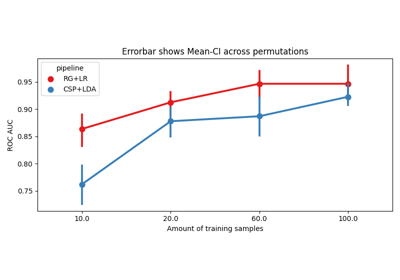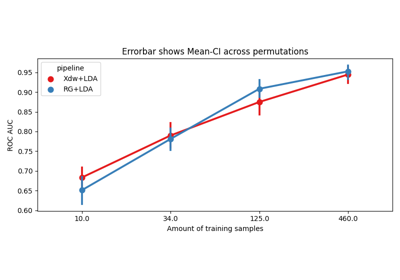moabb.evaluations.WithinSessionEvaluation#
- class moabb.evaluations.WithinSessionEvaluation(paradigm, datasets=None, random_state=None, n_jobs=1, overwrite=False, error_score='raise', suffix='', hdf5_path=None, additional_columns=None, return_epochs=False, return_raws=False, mne_labels=False, n_splits=None, cv_class=None, cv_kwargs=None, save_model=False, cache_config=None, optuna=False, time_out=900, verbose=None, codecarbon_config=None)[source]#
Performance evaluation within session (k-fold cross-validation)
Within-session evaluation uses k-fold cross_validation to determine train and test sets on separate session for each subject.
For learning curve evaluation, use
cv_class=LearningCurveSplitterwith appropriatecv_kwargscontainingdata_sizeandn_permsparameters.- Parameters:
paradigm (Paradigm instance) – The paradigm to use.
datasets (List of Dataset instance) – The list of dataset to run the evaluation. If none, the list of compatible dataset will be retrieved from the paradigm instance.
random_state (int, RandomState instance, default=None) – If not None, can guarantee same seed for shuffling examples.
n_jobs (int, default=1) – Number of jobs for fitting of pipeline.
overwrite (bool, default=False) – If true, overwrite the results.
error_score ("raise" or numeric, default="raise") – Value to assign to the score if an error occurs in estimator fitting. If set to ‘raise’, the error is raised.
suffix (str) – Suffix for the results file.
hdf5_path (str) – Specific path for storing the results and models.
additional_columns (None) – Adding information to results.
return_epochs (bool, default=False) – use MNE epoch to train pipelines.
return_raws (bool, default=False) – use MNE raw to train pipelines.
mne_labels (bool, default=False) – if returning MNE epoch, use original dataset label if True
cv_class (type, default=None) – Optional cross-validation class (e.g., LearningCurveSplitter for learning curves).
cv_kwargs (dict, default=None) – Keyword arguments for cv_class.
- evaluate(dataset, pipelines, param_grid, process_pipeline, postprocess_pipeline=None)[source]#
Evaluate results on a single dataset.
This method return a generator. each results item is a dict with the following conversion:
res = {'time': Duration of the training , 'dataset': dataset id, 'subject': subject id, 'session': session id, 'score': score, 'n_samples': number of training examples, 'n_channels': number of channel, 'pipeline': pipeline name}
- is_valid(dataset)[source]#
Verify the dataset is compatible with evaluation.
This method is called to verify dataset given in the constructor are compatible with the evaluation context.
This method should return false if the dataset does not match the evaluation. This is for example the case if the dataset does not contain enough session for a cross-session eval.
- Parameters:
dataset (dataset instance) – The dataset to verify.
Examples using moabb.evaluations.WithinSessionEvaluation#

Using X y data (epoched data) instead of continuous signal
